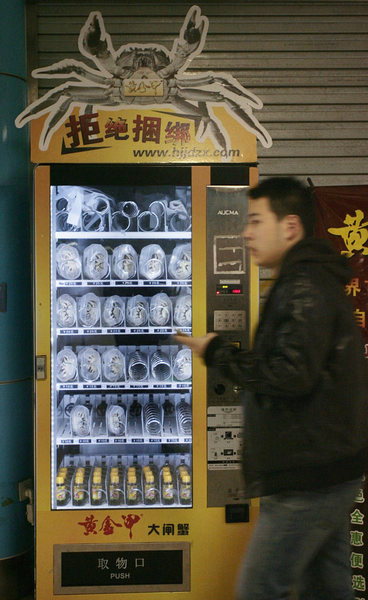The following is a guest post that doesn’t necessarily represent the opinion of The Peking Duck
Sub-rationalists in Communist China cannot face reality of Liu Xiaobo winning the Nobel Peace Prize for 2010…..
by Biko Lang
Taipei
It would have been nice if Taiwan could have sent a small bipartisan delegation of politicians and academics from both the DPP and the KMT to attend the Nobel Peace Prize ceremony in Oslo this week. With China putting its head in the sand once again and refusing to face reality, the world is left wondering: just what makes Beijing tick?
As some of the WikiLeaks cables have confirmed what many old China hands always knew, many of Chinese Communist Party’s leaders act in a “sub-rational” manner when confronted with thorny issues like Taiwan’s sovereignty or Liu Xiabo’s Nobel Peace Prize.
In a move that rattled Beijing sub-rationalists again, the U.S. House of Representatives stood up for the values of freedom and democracy last week with a bipartisan resolution honoring imprisoned Chinese activist Liu, Nobel laureate.
Earlier in the year, in February, a group of American lawmakers nominated Liu and two other Chinese activists for Nobel Peace Prize consideration, noting in a public letter that “few governments have the courage to brave the Chinese government’s displeasure and honor them.”
The Nobel committee did honor Liu, and what an honor it is!
While China’s new Nobel laureate remains behinds bars and cannot attend the Nobel ceremony in Oslo this weekend, with his wife under house arrest and forbidden to fly to Norway to accept the prestigious award for him, a large part of the world will be celebrating his award. Not present in Oslo, Liu was nevertheless there as a potent symbol. Invisible outside his prison cell, he was very visible in the halls of freedom.
Freedom is borderless, and someday it will come to China, too, That’s exactly what the rulers in Beijing are afraid of.
The announcement earlier in the fall that Liu had bagged a Nobel this year sparked ominous warnings from China that countries who recognized his achievement would have to “take responsibility for the consequences.” Apparently, this was a stern warning from Uncle Hu to the U.S,, France, Germany, Britain, Australia, Japan and, yes, Taiwan.
But the U.S. House resolution pressed forward and lauded Liu for his human-rights activism, honoring him for his “promotion of democratic reform in China, and the courage with which he has bore repeated imprisonment by the government of China.”
Former U.S. Speaker Nancy Pelosi, who was to attend the Oslo shindig on behalf of her nation, had previously written to Hu Jintao in May 2009 asking for the release of “prisoners of conscience” including Liu Xiaobo.
Pelosi has always had heart. In 1991, a much-younger but always-idealistic Nancy Pelosi had secretly unfurled a banner in Tiananmen Square dedicated “To those who died for democracy [in 1989] in China.”
Liu, it seems, is a hero everywhere but in China.
The U.S. effort to honor Liu and call out China attracted support from both sides of the political aisle in Washington, with both Democrats and Republicans getting behind the bill.
One supporter of the bill said that the bipartisan support reflected the fact that “there’s been a growing understanding among members on both sides of the aisle that this dictatorship is a growing threat to local stability but also to the world. We can’t give the Chinese dictatorship a pass any longer on human-rights abuse,”
So wouldn’t it be nice if Taiwan could have sent a bipartisan delegation of both DPP and KMT leaders to Oslo to honor Liu? Maybe next time.

Comments